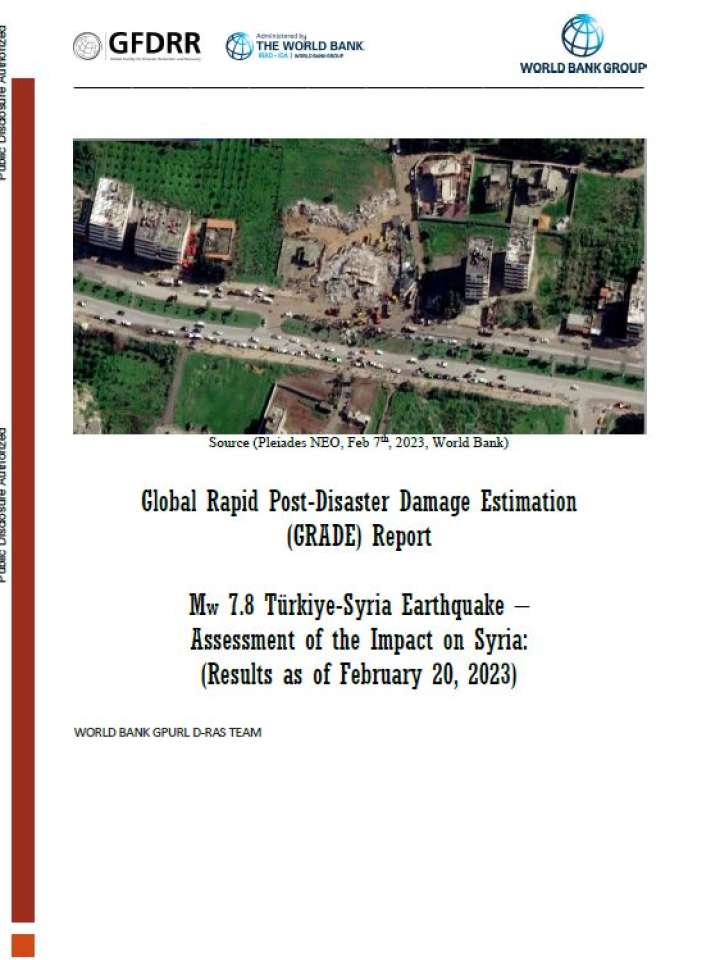Global Rapid Post-Disaster Damage Estimation (GRADE) report: Mw 7.8 Türkiye-Syria Earthquake – Assessment of the impact on Syria
Following the magnitude (Mw) 7.8 Türkiye-Syria Earthquake on February 6, 2023 and the Mw 6.3 earthquake on February 20, 2023, the World Bank carried out a remote, desk-based assessment of the physical damages in Syria using the Global RApid post-disaster Damage Estimation (GRADE) methodology. The objective of the assessment is to develop a model-based estimate of the direct physical damages to residential buildings (houses) and non-residential buildings caused by the event, and to evaluate the spatial distribution of damages. In this report, direct physical damage is quantified using the gross capital stock, which is the replacement cost of an asset newly rebuilt based on current unit costs and construction practice, and although it does include fixed and mobile industry capital, it does not take into account transport equipment, or technological changes etc.
Reconstruction costs are expected to be proportionately higher for non-residential than residential buildings, due to the possibility of upgrades and build back better practices (because a large share of its capital stock and production technologies are outdated). Estimates of direct damages, presented in this report, do not include costs associated with humanitarian and emergency response, or the losses associated with economic flows (for example, business interruption). As of February 20, 2023, the confirmed death toll across Türkiye and Syria surpassed 47,000 deaths, with 6,599 fatalities and 14,500 injuries in Syria. In northwest Syria, this includes 4,525 reported deaths and 8,424 reported injuries, with many still trapped under the rubble. More details on the fragility and crisis dynamics and how these amplified the earthquakes’ impacts are discussed in the Annex B of this GRADE report.
